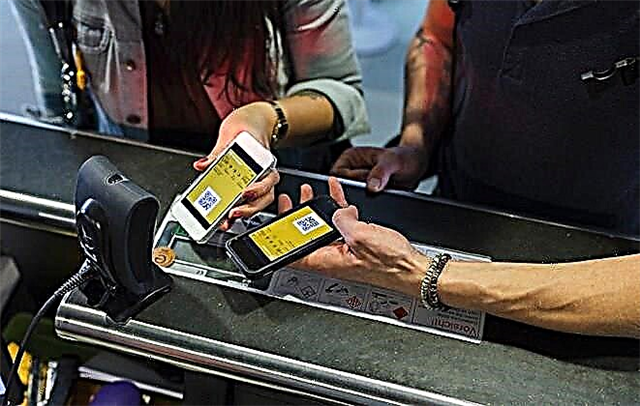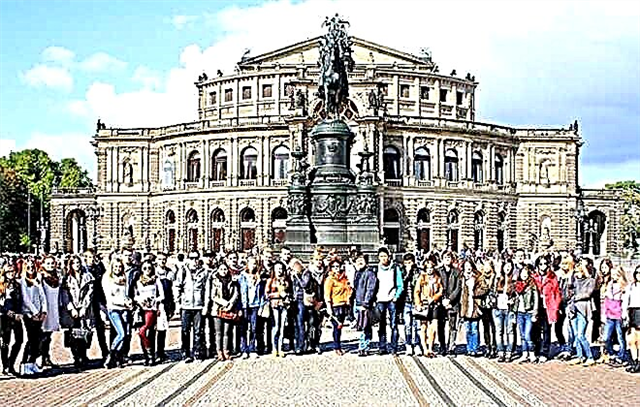In the Czech Republic, foreign students can get a quality education for a low fee or even free of charge. Graduates of Czech universities have every chance of finding a job or starting their own business in the Czech Republic. Some educational institutions in the country are among the oldest in Europe. The universities of Prague, Brno and Ostrava enjoy the greatest success.

Features of higher education in the Czech Republic
The system of higher education in the Czech Republic includes two types of higher educational institutions: public and private. In total, 70 universities operate on the territory of the country. Education in them is conducted in a variety of specialties, from medicine to fine arts. However, medical and law faculties are most attracted to students.
In state universities, foreign students have the right to free education, but only in programs in the Czech language. Programs in foreign languages (for example, in English or Russian), like tuition at private universities, are paid.
For more information on how students are trained in a foreign language, read the material "Studying in the Czech Republic in English".
Higher education in the Czech Republic is provided at three levels:
- bachelor's degree - 3-4 years;
- Master's degree - 1-2 years;
- doctoral studies - 2 years.
Graduates receive a diploma and certificate in English and Czech. This certificate is a confirmation of the diploma in other European countries.
More information about the peculiarities of the educational process can be found in the article "Higher education in the Czech Republic".
Characteristics of public universities in Prague
Prague State Universities train specialists in the field of jurisprudence, technology, economics, and medicine. The academies of applied arts are very popular. One of them is the Graduate School of Applied Arts, where students from all over the world receive art education. The uniqueness of the teaching methodology at the Higher School is that they not only study theory, but also work in parallel in art studios under the guidance of masters.
The most famous public institution of higher education in the Czech Republic is Charles University, which is often referred to as the International University of Prague. This one of the oldest universities in the world was opened in 1348. It is famous not only for the long period of its existence, but also for the large number of specialties and faculties included in it. Since education is conducted in foreign languages, a larger number of foreign students study at the university.
The largest and famous chemical university in Europe is the University of Chemistry and Technology in Prague. He is known among the applicants for the achievements of students and graduates in the field of the chemical industry, as well as for the availability of special innovative equipment.
Almost all higher education institutions in the Czech Republic provide study programs for bachelor's, master's and doctoral studies. The exception here is the Prague Academy of Fine Arts. There is no undergraduate program in it.
For admission on a free basis, a foreign student must pass a complex language test for knowledge of the official language of the Czech Republic.
In the Czech Republic, all study programs in foreign languages are paid.
The largest number of English-language programs are offered in economic specialties. The creative professions are mainly taught in Czech. However, in some educational institutions, a master's degree can also be obtained in English, for example, at the Prague Academy of Arts at the Faculty of Film and Television.

The number of faculties and tuition fees depend on the specific educational institution.
| The name of the university | Number of faculties | Available forms of training | Languages of instruction | Tuition fees per year (in a foreign language) |
|---|---|---|---|---|
| Charles University | 17 | Full-time, part-time, combined | Czech, English | 2000-6000 euros |
| University of Chemical Technology | 4 | Full-time, part-time, combined | Czech | - |
| High School of Economics | 6 | Full-time, part-time | Czech, English, Russian | 3600 euros |
| Czech Technical University | 8 | Day, combined | Czech, English, Russian | 3800-4900 euros |
| Czech Agricultural University | 7 | Day, combined | Czech, English | 550-3500 euros |
| Prague Academy of Arts | 3 | Day, combined | Czech, English | 4450-16970 euro |
| Higher School of Applied Arts | 5 | Daytime | Czech | - |
| Prague Academy of Fine Arts | 8 specialties (magistracy) | Daytime | Czech | - |
| Czech University of Life Sciences | 7 | Daytime | Czech, English | 2000-5500 euros |
Characteristics of private Prague universities
Not only public but also private educational institutions in Prague are very popular. Training in them is carried out only on a paid basis, but they offer a variety of study programs that are taught in English. Many of them are annually ranked among the best private universities in Europe and the world.
It is easier to enroll in a private university in Prague than in a public one: there are no high requirements for applicants. Entrance exams are often absent, instead of them there is a simple interview, which results in admission.
Curricula are also lighter compared to public universities. Education is conducted at bachelor's, master's and doctoral studies.
| The name of the university | Number of faculties | Available forms of training | Languages of instruction | Tuition fees per year (in a foreign language) |
|---|---|---|---|---|
| Metropolitan University | 5 | Full-time, part-time | Czech, English | 1100-2100 euros |
| Institute of Hotel Business | 4 | Full-time | Czech, English | 2500-3000 euros |
| Banking Institute | 11 | Full-time, combined | Czech, English, Russian | EUR 2100 |
| Anglo-American University | 10 | Full-time, part-time, distance | English | 5500 euros |
| Institute of International and Public Relations | 5 | Full-time, combined | Czech, English | 2500 euros |
| Institute of Management and Finance | 10 | Full-time, part-time | Czech, English | 1900-2500 euros |
| European University | 5 | Full-time | Czech | EUR 2200-2300 |
| New York University | 9 | Full-time | English | 5750-7250 euro |
Admission procedure
Every foreign student wishing to enter a higher educational institution in the Czech Republic on a budget should start preparing in advance. A prerequisite for free education is knowledge of the Czech language at a level not lower than B1 – B2. Therefore, if you plan to enroll in 2021, then you need to prepare for the language test already from 2021.
To apply for a bachelor's degree, you will need a certificate of secondary education. A diploma is required to enroll in a master's program. The certificate / diploma must pass nostrification, that is, be recognized in the Czech Republic.
You can apply for admission to several universities and several specialties at once. Each university determines the period for passing the entrance exams independently. They usually run from March to June.
Awarding scholarships and grants
Scholarships are paid at both public and private universities in the Czech Republic. Full-time students of public universities are eligible to receive financial support for living expenses, as well as for excellent studies. The size of the scholarship for living is set in the range of 600-700 kroons, and for studies it can be much higher, up to 33 thousand kroons at Charles University.
There are payments for certain achievements. These include scholarships for participating in olympiads in certain subjects.Those students who have completed their bachelor's degree with honors can also count on them.

The highest scholarships are established for doctoral students. Depending on the course, they can receive from 6,000 to 13,000 kroons per month.
Learn more about student support in the Czech Republic from Scholarships and Grants in the Czech Republic.
Student expenses in the Czech Republic
Each foreign student spends a certain amount per month on accommodation, meals, as well as necessary purchases. On average, the cost of a room in a Prague hostel is 130 euros. Renting an apartment for two students will cost more - about 270 euros per person.
The monthly expenses for food will be from 150 euros, for the telephone - 20 euros, for transport and entertainment - 50 euros. Students can get an international student card, which has discounts on goods and services in some companies. You can find out more about the list of organizations that provide discounts on the official ISIC website.
Buying monthly gym passes and student travel documents also cuts costs. In total, a student studying in Prague needs from 500 euros per month. Accommodation in other cities will be cheaper.
Conclusion
Obtaining higher education in Prague universities has many advantages in comparison with other European countries. Firstly, you can study for a small price or for free. Enrollment takes place based on the results of tests or interviews, for which the main criterion for selecting future students is knowledge of the language. Secondly, there is a wide range of specialties: for training, you can choose from medical, legal, and architecture faculties.











